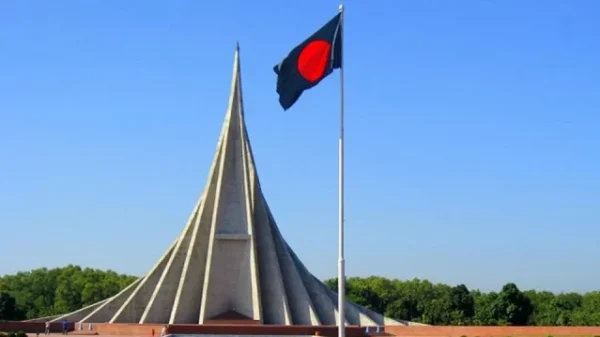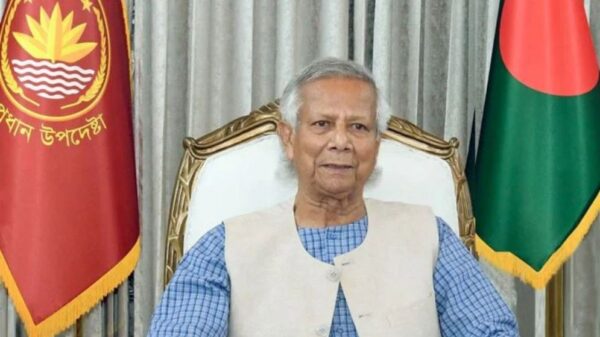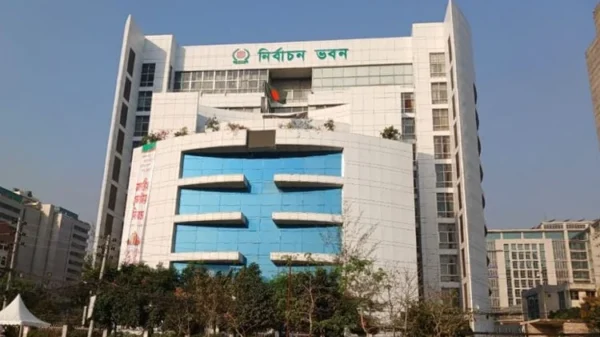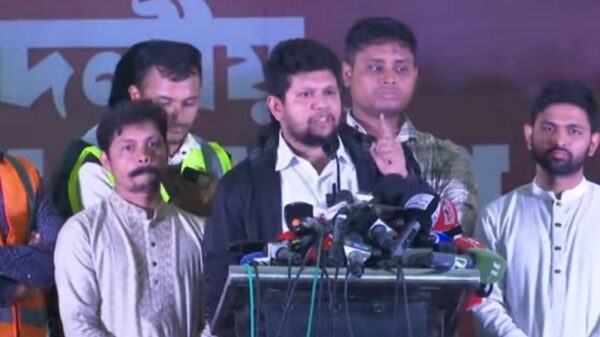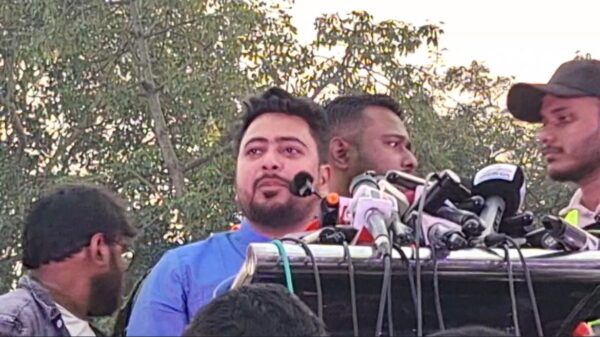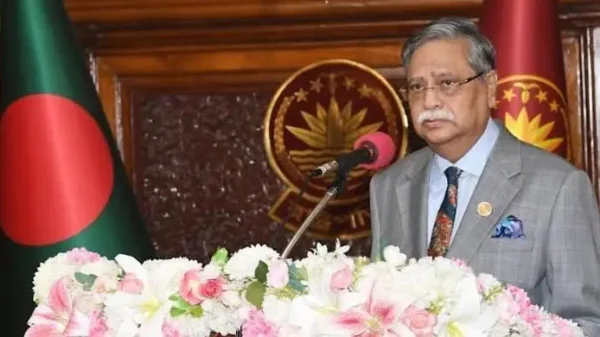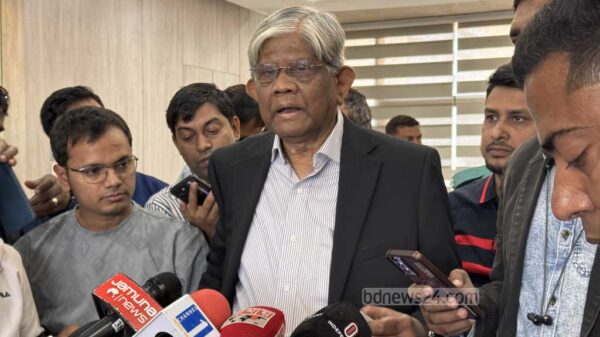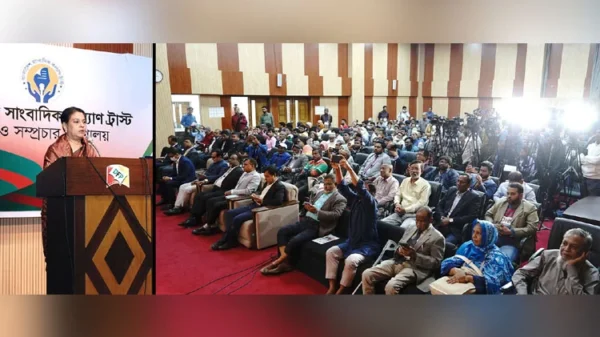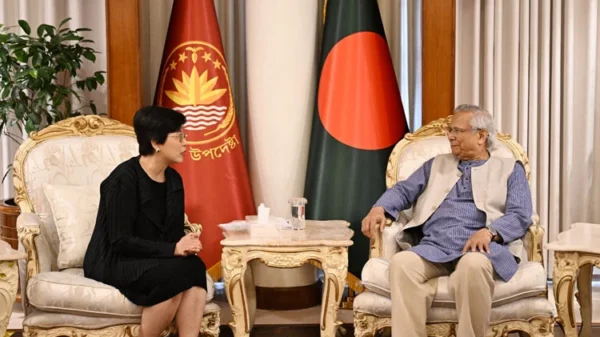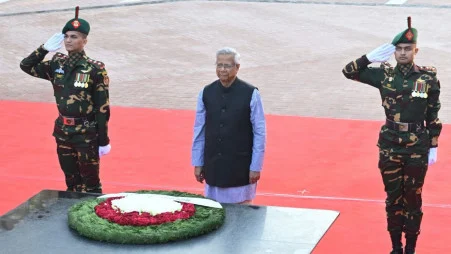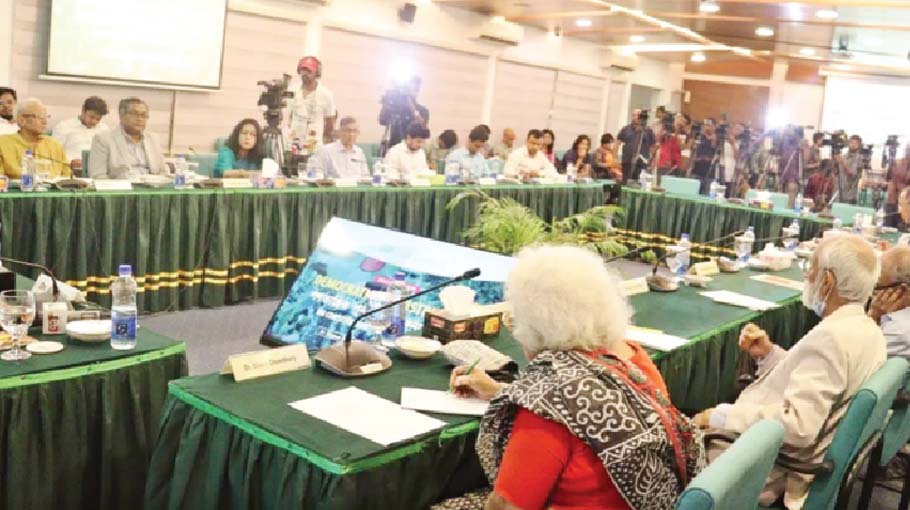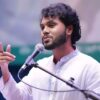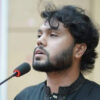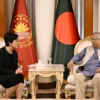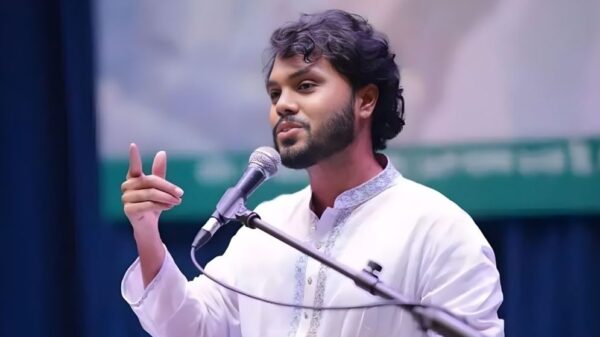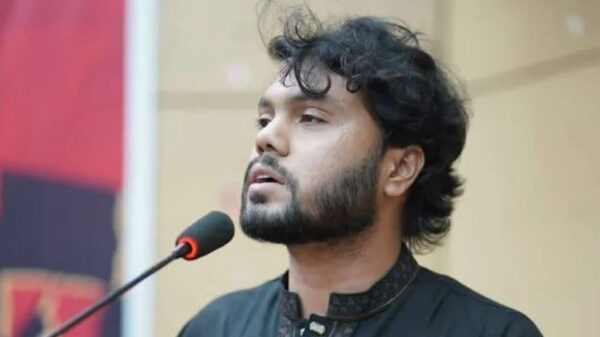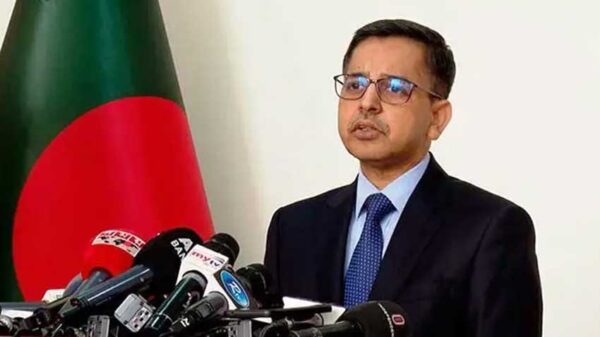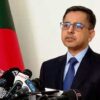Staff Reporter:
Interim Government’s Adviser AF Hassan Ariff yesterday said the Constitution serves as a vehicle for democratic reform and since the aspirations of 1971 remain unfulfilled, the mass uprising of 2024 has brought the need for its change.
“For this reason, we should consider establishing a second republic while preserving the essence of the first,” said the Adviser who is looking after the Ministry of Local Government, Rural Development and Cooperatives, as well as the Ministry of Land.
Speaking at a dialogue hosted by Centre for Governance Studies (CGS) on Saturday, he said insights from constitutional debates in other countries can guide them.
“A continuously amended constitution does not hinder democratic progress; rather, it remains a dynamic document. Our primary focus should be on democratic reconstruction, incorporating diverse perspectives to rebuild democracy effectively,” Ariff said.
Distinguished Professor of Illinois State University (USA), Dr Ali Riaz, stated that the core question is whether the current Constitution can truly support a democratic society.
“Over the past 15 years, we’ve witnessed an autocratic regime that the Constitution has effectively sus-tained,” he said.
He believes significant reforms are necessary to achieve genuine democratic change.
“The concentration of power in the prime minister’s office is a major concern, with the PM holding both executive and presidential authority,” Prof Riaz said.
The current regime operated entirely within the Constitution, meaning that future leaders will inherit the same extensive powers.
“A critical issue is the independence of the judiciary. The process for appointing members to constitu-tional bodies lacks transparency and must include open hearings,” Prof Riaz said.
The most glaring example was the prime minister’s sole appointment of the president, he said.
Similarly, Prof Riaz said, the appointment of the Election Commission has been opaque, allowing the government to install its own appointees and conduct elections on its own terms.
“We also need mechanisms to prevent the tyranny of the majority in parliament, potentially through proportional representation or a bicameral system,” he said.
Freedom of expression has been curtailed, as CGS has documented over the past four years with the misuse of the DSA and CSA.
”Given the structure of the current Constitution, even a party winning a majority of 300 seats cannot amend it. Therefore, in my view, the Constitution needs to be completely rewritten,” Prof Riaz said.
The CGS hosted the dialogue to discuss constitutional reform for the interim government at the Bangla-desh Institute of International and Strategic Studies (BIISS) Auditorium.
Speakers included Dr. Badiul Alam Majumdar, Secretary of SHUJAN, Ikteder Ahmed, former Judge and Columnist, Nurul Kabir, Editor of New Age, Dr. Borhan Uddin Khan, Professor, Department of Law, University of Dhaka, Barrister Sara Hossain, Senior Advocate, Supreme Court of Bangladesh, Dr. Manzoor Hasan OBE, Executive Director, Centre for Peace and Justice, BRAC University, A.M. Mahbub Uddin Khokon, President, Bangladesh Supreme Court Bar Association, Mahfuj Alam, Special Assistant to the Chief Adviser, Habibur Rahman, former Student, Department at Law, University of Dhaka, Z I Khan Panna, Advocate, Supreme Court of Bangladesh and Chairperson of Ain o Salish Ken-dra, Barrister Raja Devasish Roy, Chief of Chakma Circle, Dr. Dilara Chowdhury, Professor, Depart-ment of Political Science, Jahangirnagar University, Dilruba Shormin, Advocate, Supreme Court of Bangladesh, Munira Khan, President FEMA.
Zillur Rahman, Executive Director of CGS, moderated the discussion.
The first round of the discussion focused on the following thematic questions:
• What is the way to prevent constitutional dictatorship?
• What can be done to ensure a level playing field in politics?
• Does the current Constitution ensure the independence of the judiciary?
• What should the process of appointment to constitutional positions be?
• How can freedom of speech be ensured?
• How can there be a constitutional solution to the tyranny of the majority?
• Should the Constitution be amended, or should it be rewritten?
CGS Executive Director Zillur Rahman initiated the dialogue by stating that for many years, the people of Bangladesh have harboured the unfulfilled dream of establishing a democratic nation.
Instead, the past 15 years have seen Bangladesh under a dictatorship marked by enforced disappearances and a complete absence of freedom of speech.
After significant sacrifices, students who confronted discrimination and sparked a mass uprising success-fully removed the autocratic regime.
Now, Dr. Yunus, head of the interim government, has extended an invitation for a dialogue on reforms.
In response, CGS will organise a series of discussions both in Dhaka and beyond, culminating in a policy paper.
This series will consist of eight dialogues, with the first focusing on the Constitution.
“For reform to be sustainable, it must reflect the true spirit of our Liberation War, which has often been more aspirational than actualised. Yesterday, we have gathered distinguished experts in constitutional law to help guide our discussion, which will be centered around seven key questions,” Zillur said.
Dr. Badiul Alam Majumdar stated that the interim government must clarify whether it intends to reform or completely rewrite the Constitution.
“Once this decision is made, we can offer our recommendations. Clauses in the Constitution that render one-third of the Constitution untouchable do not constitute the basic structure and can be revised or re-moved,” he said.
Restoring the power of referendums could address many constitutional issues.
“We understand that the government plans to engage with political parties soon and wish them success in these discussions. It is crucial for the government to establish a clear roadmap for the nation’s repair and reconstruction,” Badiul Alam said.
Nurul Kabir stated that for a democracy, the roles of drafting and amending the Constitution should be distinct.
He said sovereignty rests with the people, not with the parliament.
“The requirements for a constitution are rooted in history, dating back to 1971. A constitution essentially serves as the state’s biography,” said the editor.
The current Constitution has several shortcomings and must reflect the will of the people.
“This must be clearly represented in the Constitution. The parliament’s role is to amend the Constitution according to its established rules, not to draft a new one. As long as the prime minister holds excessive power, the judiciary will remain ineffective. All institutions have limited powers; only the people should have limitless authority,” Nurul Kabir said.


